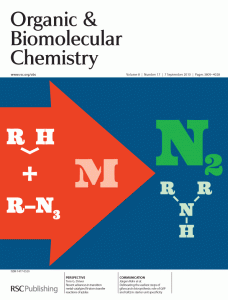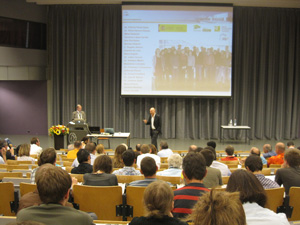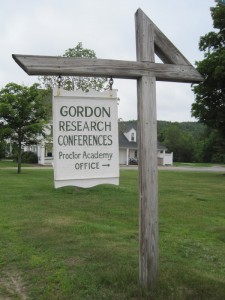In a fast moving subject field, you need your research results to be available to the community as soon as possible.
At Organic & Biomolecular Chemistry (OBC), you can now have the unedited and unformatted version of your article published shortly after acceptance as an Accepted Manuscript. This new, free service from RSC Publishing allows you to make your results available to the community, in citable form, before publication of the edited article.
Of course, each OBC article will continue to receive the current high quality editing and formatting service from a professional technical editor, and the Accepted Manuscript version of an article will become unavailable when the fully edited and formatted Advance Article version is published.
More information about Accepted Manuscripts can be found below.
What are Accepted Manuscripts?
Accepted Manuscripts are articles which have been published prior to technical editing, formatting and proof reading. All Accepted Manuscripts have been through the RSC Publishing peer review process and have been accepted for publication.
In what format does my Accepted Manuscript appear?
Accepted Manuscripts appear online as a PDF file. An Accepted Manuscript is published in the format in which it is received from you. Any supplementary material will be available as a separate file(s).
How does my Accepted Manuscript appear in the online article listing?
Accepted Manuscripts are listed in the Advance Article tab on the RSC Publishing Platform. The authors’ names in this listing will appear in the form and the order that they were entered into OBC’s online submission system by the corresponding author. Once the Advance Article version is published, the names in the listing will appear as given in the manuscript.
What files do I need to supply before acceptance?
Information about the required file formats will be supplied to you at the same time as you receive the referees’ comments on your manuscript. Submission using the RSC’s article template is encouraged but not required. Where text and image files are received separately they will be collated for publication by an RSC Publishing Editor.
What happens to my article once it has been published as an Accepted Manuscript?
Once an article has been published as an Accepted Manuscript it will be edited and formatted by a professional team of Technical Editors. The proof will then be sent to you for checking. The Accepted Manuscript will be replaced by the fully edited, formatted and proof-read Advance Article as soon as this is available.
Are Accepted Manuscripts the final scientific article of record?
No. The articles published as Accepted Manuscripts are not the final scientific version of record. The Advance Article version of the article represents the final scientific article of record.
How do I cite an Accepted Manuscript?
Accepted Manuscripts can be cited using the Digital Object Identifier (DOI®), which is printed in the left-hand margin of each page of the manuscript. The DOI for each manuscript will be retained once the fully edited Advance Article is published, so that any citations to the Accepted Manuscript will link to the final version.
Does my article have to be published as an Accepted Manuscript?
No. You have the opportunity to opt out of having your manuscript published as an Accepted Manuscript before it is accepted. Therefore not all OBC articles will be published as an Accepted Manuscript version.
When is the official publication date of my manuscript?
The official publication date of your article will be the date when the Accepted Manuscript version is published.
Can my Accepted Manuscript be published before the RSC’s “Licence to Publish” is completed?
No. A completed “Licence to Publish” must be received before your article can be published.
For further information about Accepted Manuscripts please contact the Editorial office.
 This is the inside cover article of OBC Issue 17 and therefore is free to access for 6 weeks!
This is the inside cover article of OBC Issue 17 and therefore is free to access for 6 weeks!















